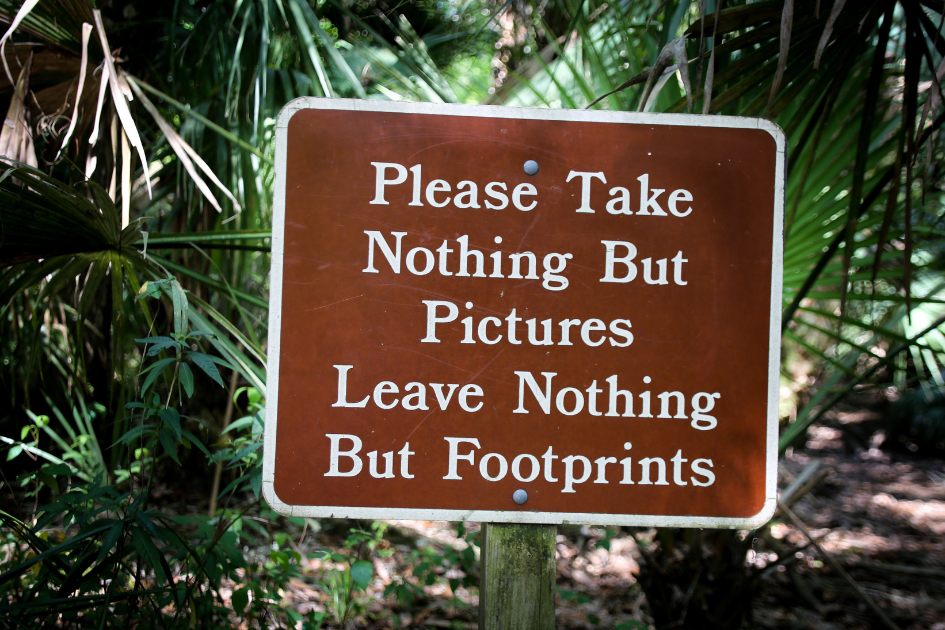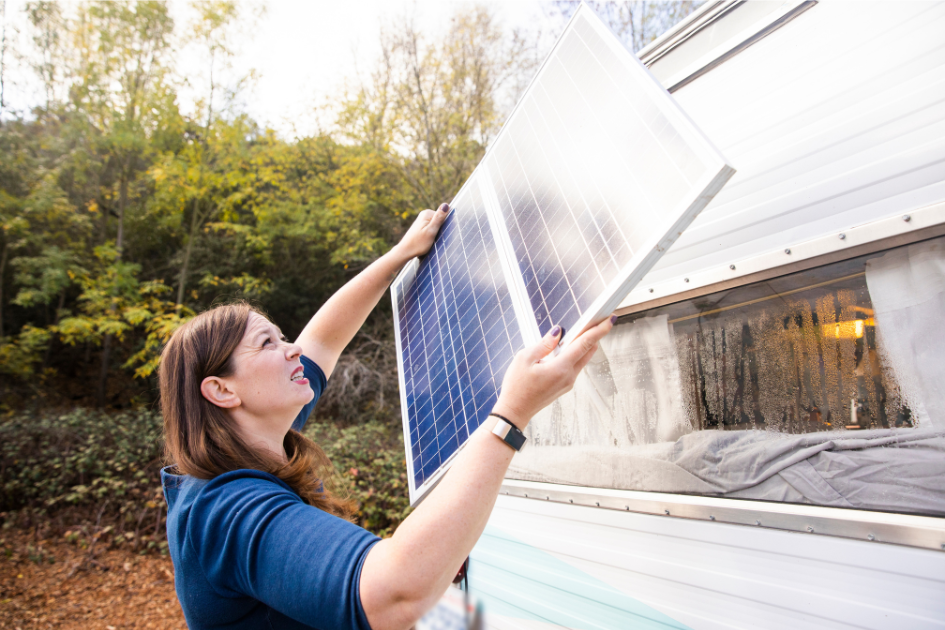Keep It Green: Tips for Eco-Friendly RV Camping
RVing can be a wonderful way to explore the great outdoors, escape the stress of everyday life, and reconnect with nature and with your loved ones. However, unless done thoughtfully, RV camping can unfortunately be harmful to the environment. But there are many steps you can take to reduce your footprint and enjoy eco-friendly camping! Here’s how to get started.
Live by the “Leave No Trace” motto
All campers should follow this principle – leave the camp area looking like nobody was ever there. Not only is it respectful to your fellow campers so that they can enjoy the most of the campground, but it also helps to preserve the campground and the natural environment. Don’t leave any waste behind, and don’t disturb any wildlife or damage any of the natural environment. Always be respectful of your surroundings.

Minimize your waste
When RVing, it’s easy to produce a lot of waste. Be conscious of your products and opt for environmentally friendly alternatives whenever possible. Bring reusable bags, water bottles, and utensils, and consider composting your food waste. Additionally, be mindful of the amount of water you’re using and try to conserve as much as possible.
Choose eco-friendly gear
When choosing your camping gear, opt for products that are made sustainably and responsibly. Look for items that are made from recycled materials or natural materials such as cotton, hemp, and bamboo. Likewise, try to find long-lasting, reusable items instead of single-use items. This will help you reduce your waste, and your overall environmental impact.

Optimize your fuel efficiency
RVs are notoriously fuel-hungry, but there are ways to make your vehicle more efficient. Keep your tires properly inflated, avoid idling, and use cruise control when possible. Additionally, consider installing a solar panel or wind turbine to generate your own power, reducing your reliance on traditional energy sources.
Use eco-friendly cleaning products
Many mainstream cleaning products are filled with harmful chemicals that can be damaging to the environment. Look for cleaning products that are biodegradable and free of harmful chemicals, or consider making your own cleaning solutions using natural ingredients like vinegar and baking soda.
Reduce your energy consumption
Just like in your home, there are many ways to reduce your energy consumption while RVing. Turn off lights and electronics when they’re not in use, use energy-efficient light bulbs, and opt for low-energy appliances when possible. Every little bit counts!

If you’re an avid RVer, then you probably love surrounding yourself with nature. So why wouldn’t you want to do your part to preserve it? By following these tips for eco-friendly camping, you can enjoy all the benefits of camping while minimizing your impact on the environment.
Good luck and happy travels!

